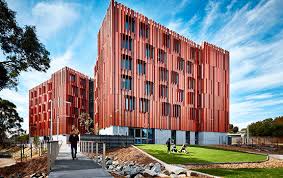Monash uses net zero expertise to trial microgrids in regional communities
Monash University has received almost $2 million from the Federal Government to use its net zero expertise to assess the feasibility of implementing microgrids in six regional Victoria communities.
Federal Energy Minister Angus Taylor announced Monash had been awarded $1.934 million for the Active Energy Precincts: Building Stronger Regional Communities project, under the second round of the Regional and Remote Microgrid Reliability Fund.
Monash will use its microgrid, smart energy, storage and commercial expertise to help six communities in the Surf Coast, Yarra Ranges and Wodonga local government areas (LGAs).
Working to identify two communities from each LGA, they will develop a business case for microgrids by demonstrating how they can reduce emissions, improve energy reliability and reduce energy costs.
Each microgrid will aim to virtually connect one business and approximately 20 homes into a microgrid including local renewable generation and energy storage. The study will capture and analyse data to help develop attractive and replicable investment opportunities.
Monash was the first Australian university to commit to an energy reduction target through an initiative to achieve net zero emissions by 2030. This includes implementing energy efficiency measures, the electrification of campuses by ending reliance on natural gas, powering our campuses completely from renewable energy sources, offsetting our residual emissions, and introducing a sustainable microgrid.
Monash University Chief Operating Officer and Senior Vice-President Peter Marshall AM said Monash was well on its way to meeting its goal, and had already implemented a microgrid at its Clayton campus.
He said the University was excited to share its net zero expertise and support the broader community to implement energy reforms.
“Monash is not just conducting research into ways the world can tackle climate change, but is making real change to demonstrate how we can all move towards the goal of net zero emissions,” Mr Marshall said.
“This project demonstrates how Monash’s net zero operational and research expertise is being translated into projects that support the wider community to work towards net zero emissions.”
Monash Net Zero Initiative Program Director, Scott Ferraro, said this project will build off Monash’s own operational, research and education expertise in microgrids.
“This project will see the translation of learnings from Monash’s own Net Zero Initiative, where we are developing and utilising microgrid technologies to help achieve our net zero emission targets,” he said.
“The Active Energy Precincts project aims to bring the community together to build resilience, increase the use of assets and help reduce energy costs.
“Community involvement will be key to the success of these projects, as it will ensure local needs and preferences are factored into the design and commercial models of the proposed microgrid system.”
Director of the Monash Energy Institute, Professor Ariel Liebman, said Monash’s research expertise in microgrids will be directly translated to help develop real world microgrid solutions.
“Monash Energy Institute researchers have significant expertise across a broad range of disciplines to help develop microgrid solutions. For the Active Energy Precincts project, this will include our power system capability, and energy system optimisation and AI to ensure the microgrids can deliver reliable energy to enhance community resilience”.
Monash will work with Birdwood Energy on delivering the project. They will lead the analysis for the feasibility study and draw from their commercial experience in establishing microgrids.
Birdwood Energy CEO Scott McGregor said they were delighted to be working with Monash on this practical program.
“Together, we will show Victorian communities how they can work together to bring forward the clean, distributed energy future – from the bottom up,” he said.
The project will now identify suitable communities for the project, which is expected to be completed in 2023.

